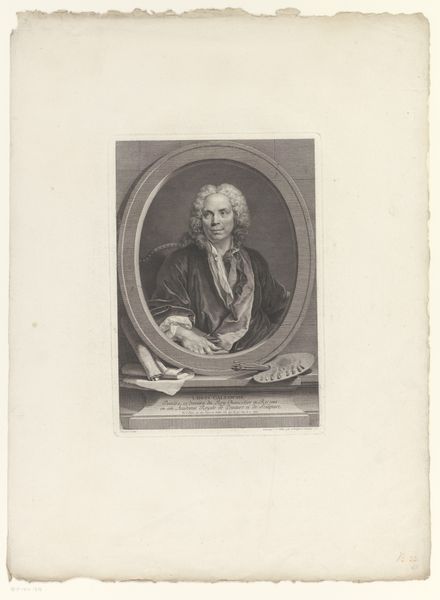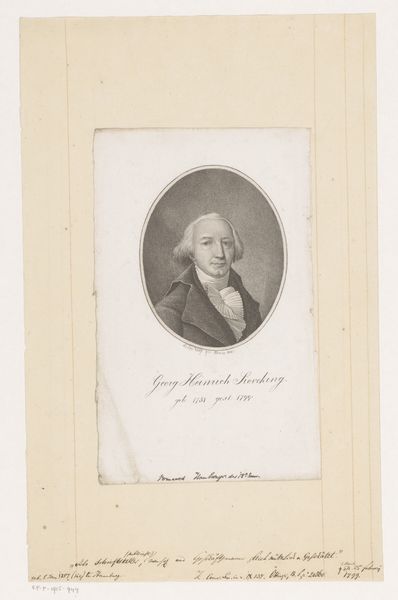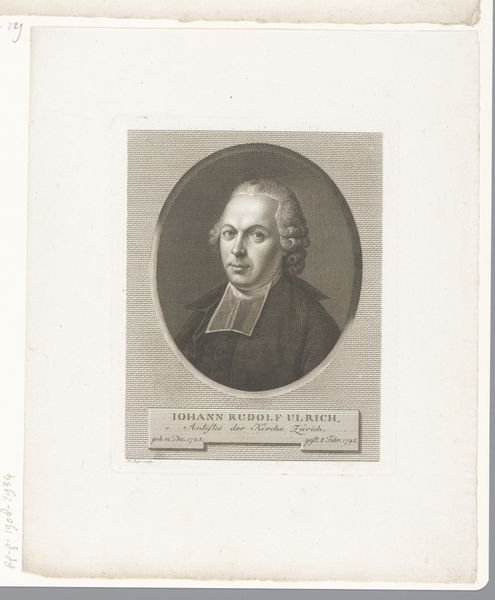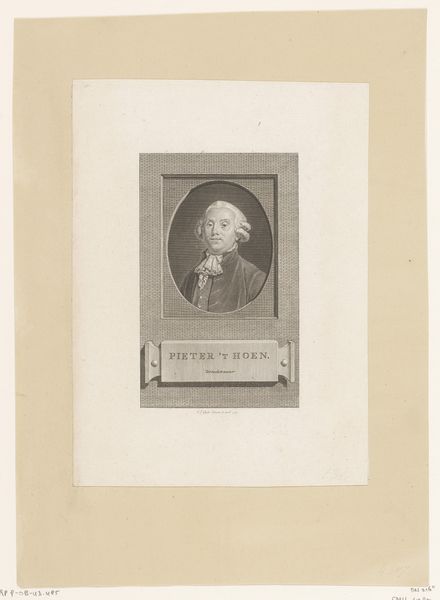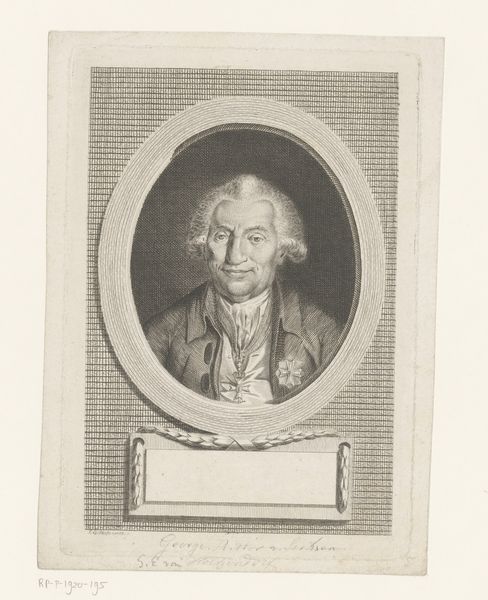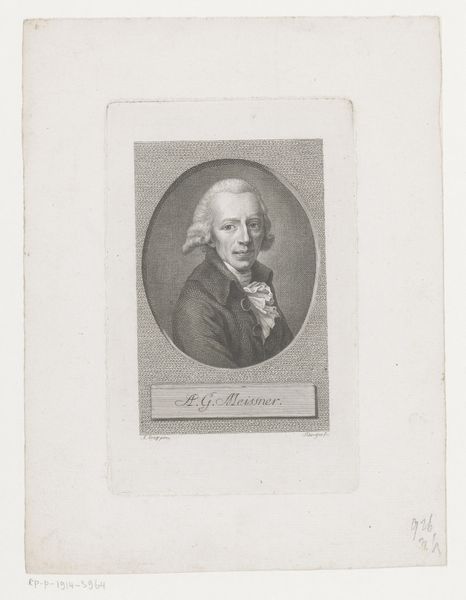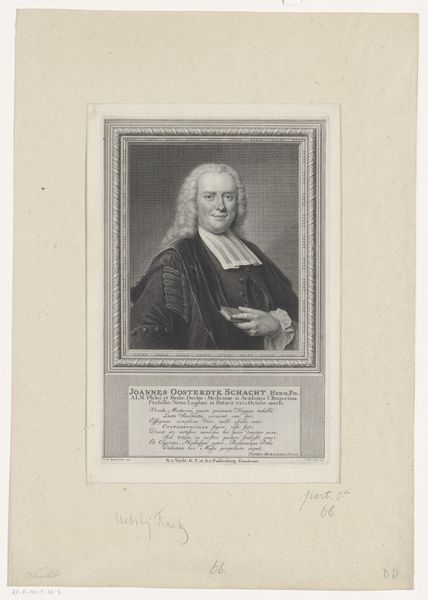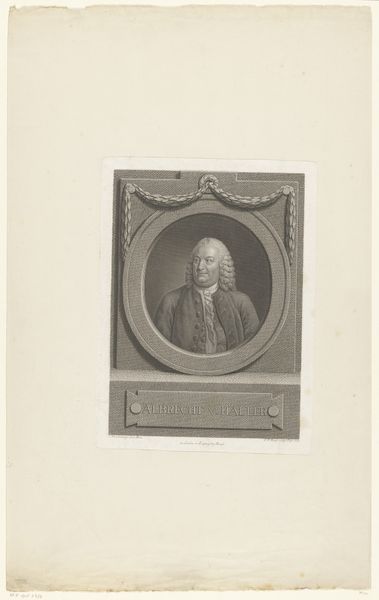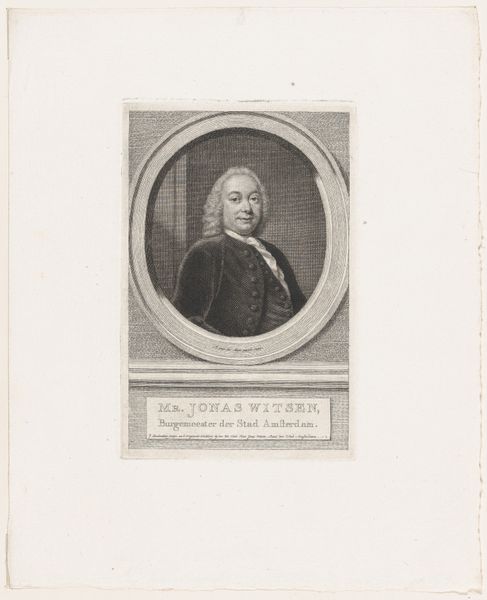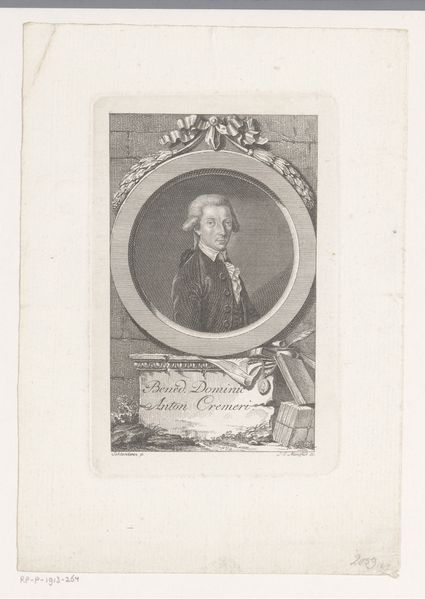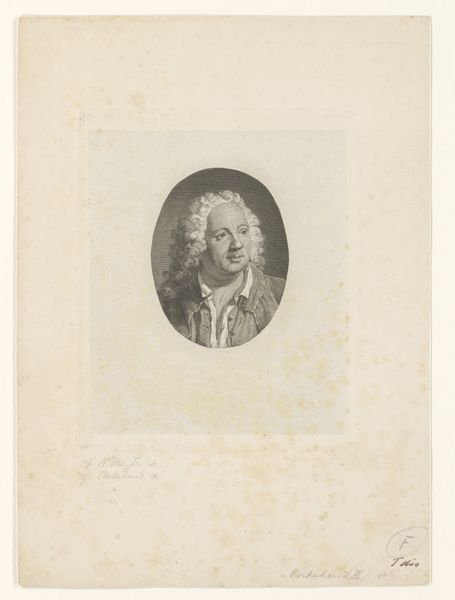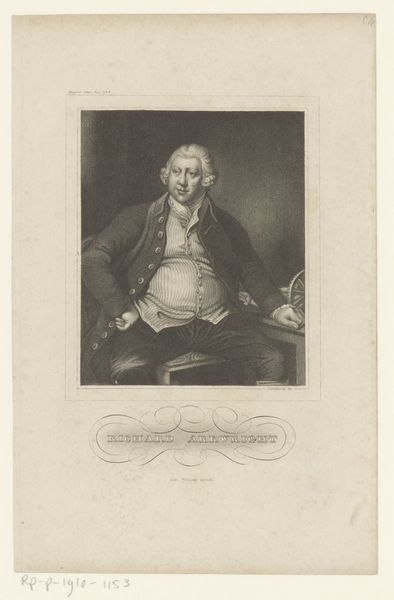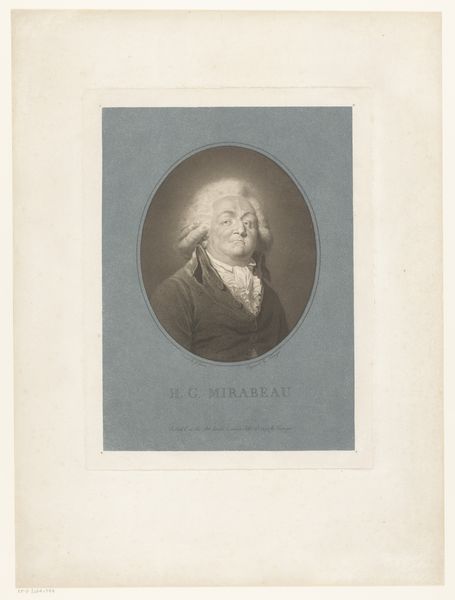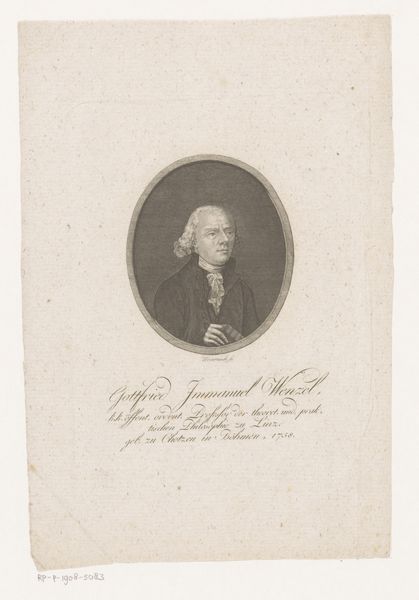
print, etching
#
portrait
#
neoclacissism
# print
#
etching
#
realism
Dimensions: height 319 mm, width 244 mm
Copyright: Rijks Museum: Open Domain
Jean François Ribault made this portrait of Jacques-Henri Bernardin de Saint-Pierre using etching and engraving techniques. Look closely, and you’ll notice the texture created by the lines. Ribault used a metal plate, coated with wax, to create this image. He then used tools to scratch away the wax, exposing the metal beneath. Acid was applied to bite into the metal, creating grooves. Ink was then applied to the plate, filling the grooves, and the image was transferred to paper using a printing press. The skilled labor involved in etching and engraving was crucial to printmaking, which allowed images and ideas to spread widely during this period, influencing social and political movements. In that sense, it democratized access to art and information, playing an important role in shaping public opinion during this time. The detailed rendering suggests the sitter's intellectual sophistication, and the print would have allowed this idea to circulate widely. So, considering the materials, the making, and the context, we can better understand the important role of printmaking in culture, society, and politics.
Comments
No comments
Be the first to comment and join the conversation on the ultimate creative platform.
